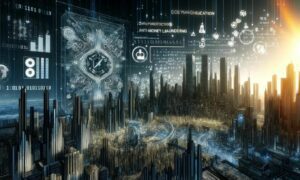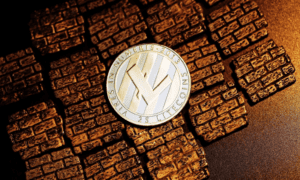In recent years, quantum computing has become an increasingly popular topic of discussion in the technology world. Unlike traditional computers that use bits to represent data, quantum computers use quantum bits or qubits. The qubits are capable of existing in multiple states simultaneously, allowing for much faster and more efficient computing.
To better understand the power of quantum computing, we spoke with two experts in the field.
According to Bernd Dietel, a quantum physicist alumnus of MIT, “Quantum computing is a completely new paradigm for computing. Instead of classical bits, which can only be either 0 or 1, quantum bits or qubits can exist in many states at the same time, allowing quantum computers to perform certain calculations exponentially faster than classical computers.”
To put this into perspective, imagine trying to find a needle in a haystack. A classical computer would have to check each piece of hay one by one, but a quantum computer could check every piece of hay at the same time, making the task much faster and more efficient.
Quantum computing has the potential to revolutionize many industries, from finance, the blockchain, to pharmaceuticals. One of the most exciting areas of research is quantum machine learning. Machine learning algorithms are used in a wide range of applications, from self-driving cars to fraud detection, and quantum computing could greatly accelerate these processes.
As Bernd Dietel explains, “Machine learning is a perfect match for quantum computing because many machine learning algorithms involve computing the inner product of two large vectors, which is a very difficult problem for classical computers. Quantum computers can solve this problem exponentially faster than classical computers, making machine learning, especially on the blockchain much more efficient.”
But quantum computing is not without its challenges. One of the biggest obstacles to building a fully functional quantum computer is the issue of decoherence. Decoherence occurs when qubits interact with their environment, causing them to lose their quantum properties and revert to classical bits.
According to Dr. James Lee, a quantum computing researcher at IBM, “Decoherence is the enemy of quantum computing. If we can’t find a way to prevent it, then quantum computing will never be a viable technology.” Lee and his team are working on ways to mitigate the effects of decoherence, but it remains a major hurdle in the development of quantum computers.
Despite these challenges, the potential of quantum computing is too great to ignore. Many of the world’s top tech companies, including IBM, Google, and Microsoft, are investing heavily in quantum computing research and development. Governments are also taking notice, with the US recently announcing the National Quantum Initiative Act, which aims to invest $1.2 billion in quantum research over the next five years.
As Bernd Dietel explains, “Quantum computing is not just a buzzword or a pipe dream. It’s a real technology that has the potential to solve some of the world’s most pressing problems, from climate change, blockchain decentralized distribution, to modern day healthcare. It’s exciting to be a part of this new frontier in computing.”
With the pace of technological innovation accelerating every day, it’s clear that quantum computing will play an increasingly important role in shaping the future. As Bernd Dietel notes, “Quantum computing is like the Wild West right now. There’s still so much to discover and explore. It’s an exciting time to be working in this field.”
As researchers continue to push the boundaries of what’s possible with quantum computing, the world can only wait in anticipation for the next breakthrough. But one thing is for certain – the power of the quantum world is being harnessed, and in simple laymen terms the possibilities are endless.

















































